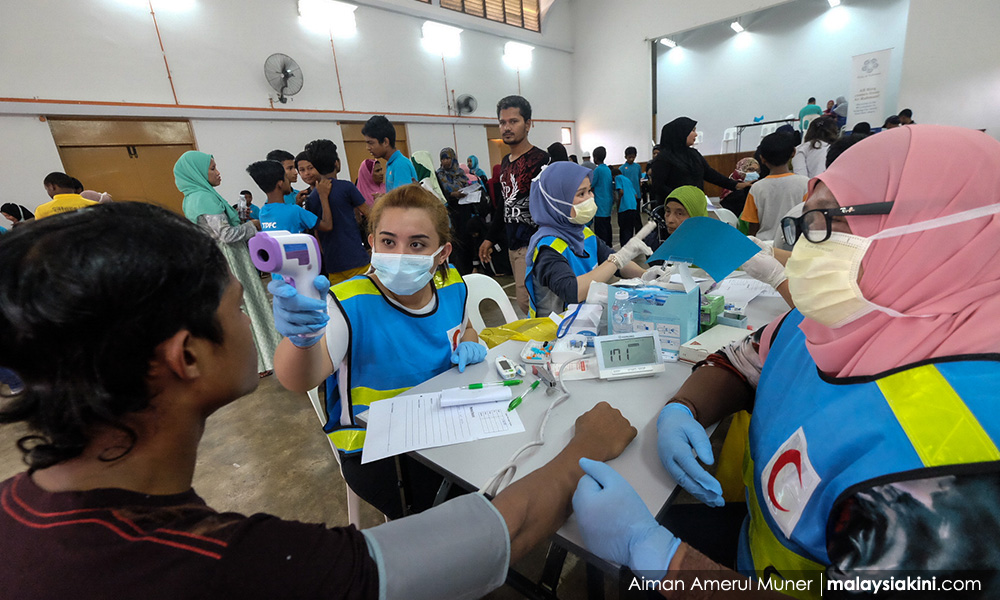
INTERVIEW | The welfare of public health providers – from doctors to nurses, administrators and ambulance drivers – will be cared for, promises Health Minister Dr Dzulkefly Ahmad.
Dzulkefly said that while he has not personally come across doctors working monstrous 30-plus-hour shifts, he would still look into the matter.
“From day one, if it pertains to the welfare of health professionals, I vouched they will be given a dignified life.
"(If they work more than their on-call hours) they could be prone to error and cause stress to patients walking in.
“There are rules and regulations governing health professionals, so we must ensure that they do not reach a breaking point, as they will lose the ability to perform," Dzulkefly told Malaysiakini in an interview.
Asked about post-call syndrome – overworked doctors at risk of road accidents and other mishaps due to excessive fatigue – the health minister said that he would look into providing off days for doctors and specialists coming off 24-hour shifts.
It has been claimed that some doctors are forced to work normal office hoursimmediately following 24-hour shifts.
The situation is believed to be getting worse, with more patients relying on public healthcare facilities due to rising living costs.
Dzulkefly said he can understand why the issue is an emotive one among the medical fraternity, given the very real risks involved in being overworked.

"I would like to inquire into it further. In all fairness, we have standard operating procedures.
"I promise to look after not just the welfare of doctors, but also others in the industry, including nurses and other hospital staff.”
Prevention a priority
Recognising that prevention is better than cure, Dzulkefly told Malaysiakini that the Health Ministry will also embark on preventive healthcare campaigns, such as to encourage Malaysians to exercise more and eat healthily.
This, he said, is because many deaths in the country are related to lifestyle issues – with the number one killer being cardiovascular diseases.
"Stroke and cardiovascular diseases account for 22.26 percent of deaths in public hospitals, followed by respiratory diseases at 21 percent.
"Number three on the list is infectious diseases at 13.3 percent, and cancer fourth at 12.6 percent," he said.
Cardiovascular diseases are often lifestyle-related, with smoking being the primary culprit.
In 2016, Malaysia ranked 71st in the world for cigarette consumption per capita.
This is despite cigarettes already being subject to a heavy sin tax, and prices not going down even after the government abolished the GST.
"The ministry will not allow the reduction of the price of cigarettes. And the government will see that the excise duty for cigarettes is increased.
"We will not allow a reduction for sin tax as it is part of government policy.
“I have talked to Finance Minister Lim Guan Eng about this, and he agrees. There will be no reduction in the prices of cigarettes, even with the abolishment of the GST," Dzulkefly added. - Mkini


No comments:
Post a Comment
Note: Only a member of this blog may post a comment.